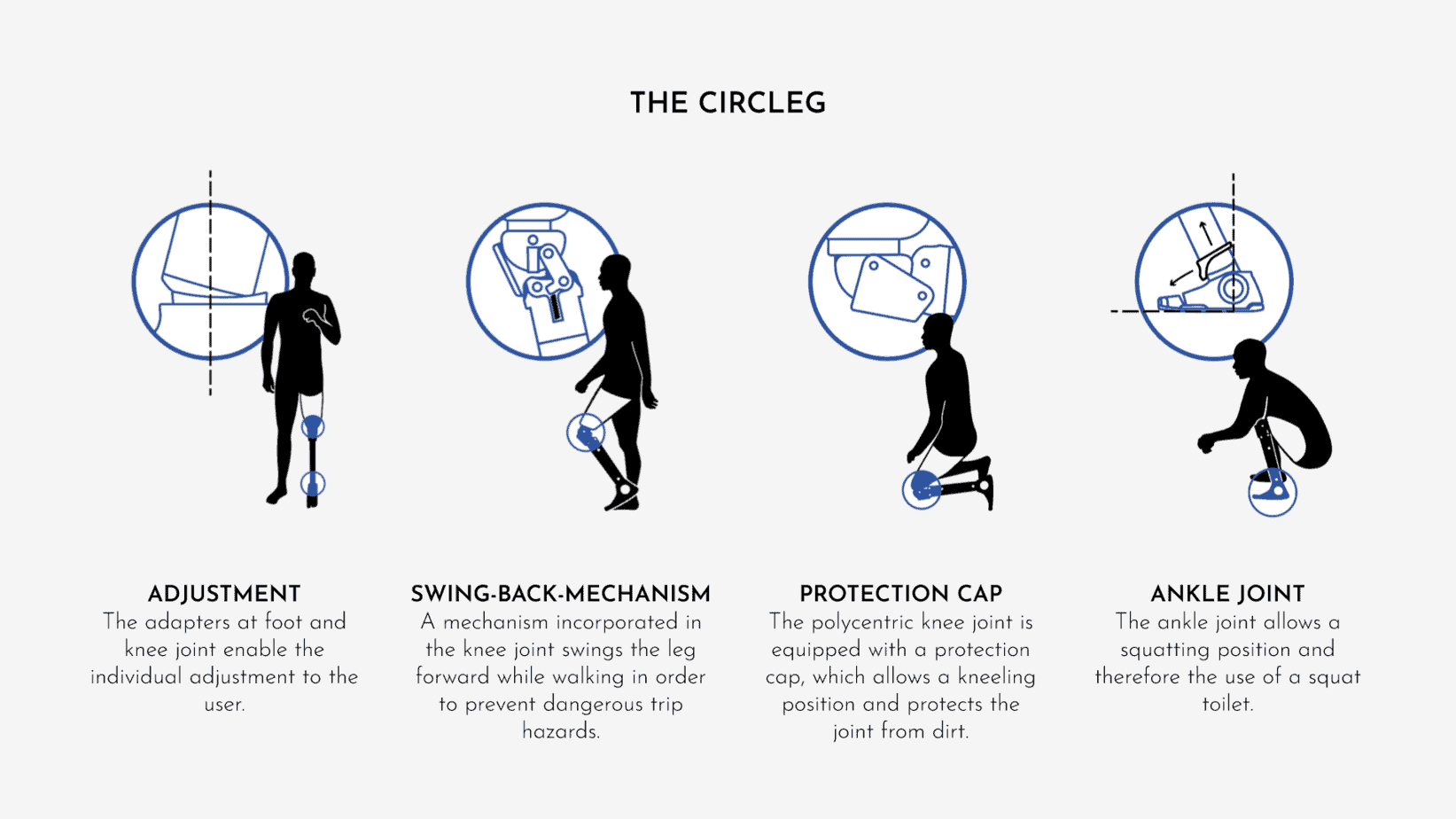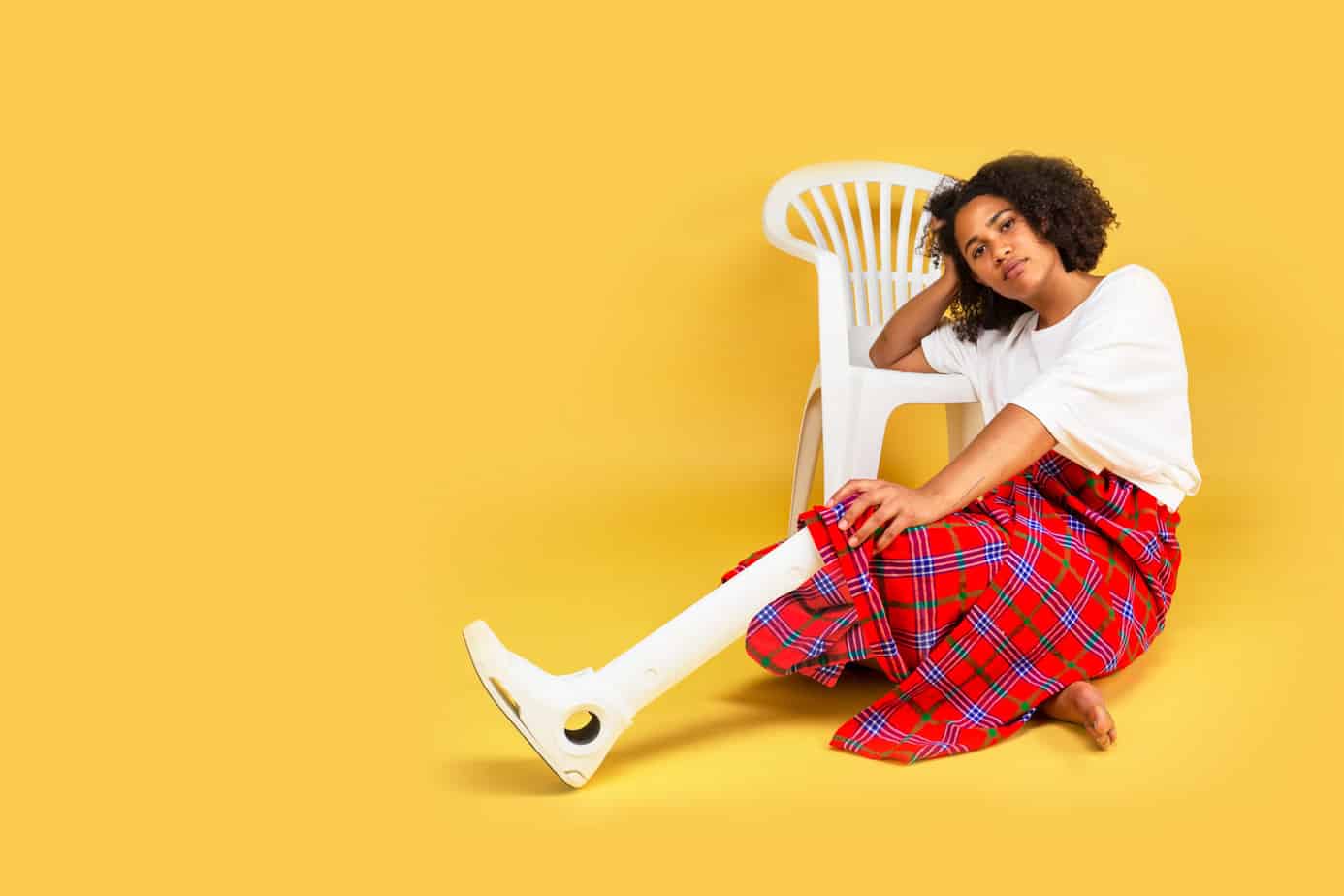A product, service, and experience are regarded as human-centred design when the process and the end result seek to improve the lives of people living in poverty.
The human-centred design approach provides integration of the needs and requirements of those affected and the local production and the possibilities for maintenance which are key factors for a system such as Project Circleg.
According to the World Health Organization (WHO) 2017 standards for prosthetics and orthotics, 35 to 40 million people in the world need prostheses or orthoses.
The demand for low-cost prostheses is high in many developing countries such as Kenya due to traffic accidents, poor medical care or armed conflict. The existing prosthetic systems lack in terms of functionality, affordability and availability.
Based on the data gathered by Project Circleg only a few people today in such need have access to prostheses and orthoses products. The effect is that many individuals without access are confined to their residential area and live dependent, excluded family lives and society.
Project Circleg
Project Circleg is an affordable lower-limb prosthetic system designed for the needs of amputees in developing countries.
The project aims at the use of recycled plastic waste in combination with simple production methods, the Circleg prosthesis can be produced locally and cost-effectively.
The unique aspect of Project Circleg is the circular economy and the design to work in a material cycle.
The Team uses plastic waste as a resource for prosthetics in order to simultaneously satisfy a social demand and tackle an urgent environmental issue. Project Circleg has also developed an ecologically, economically and socially sustainable business model for the production of inexpensive lower-limb prostheses.
The team is design-driven and therefore they develop the product according to the needs and circumstances of the users.


Source: Project?Circleg
In addition to actually making prosthetics to improve the livelihood of poor people with affordable lower-limb prosthetics, Project Circleg is working to get the social sector at large to take a human-centred approach to problem-solve too.

We are glad to connect with Project Circleg co-founded by Fabian Engel and Simon Oschwald who are industrial designers seeking to impact the local community in Kenya and Uganda with the prosthetic product implementation.
Further development on the Circleg prosthetic system and the business case are being carried out to improve on the scalability and the ability to have an impact wherever affordable prosthetics are needed.
Follow Project Circleg on Instagram, Facebook and Twitter.




